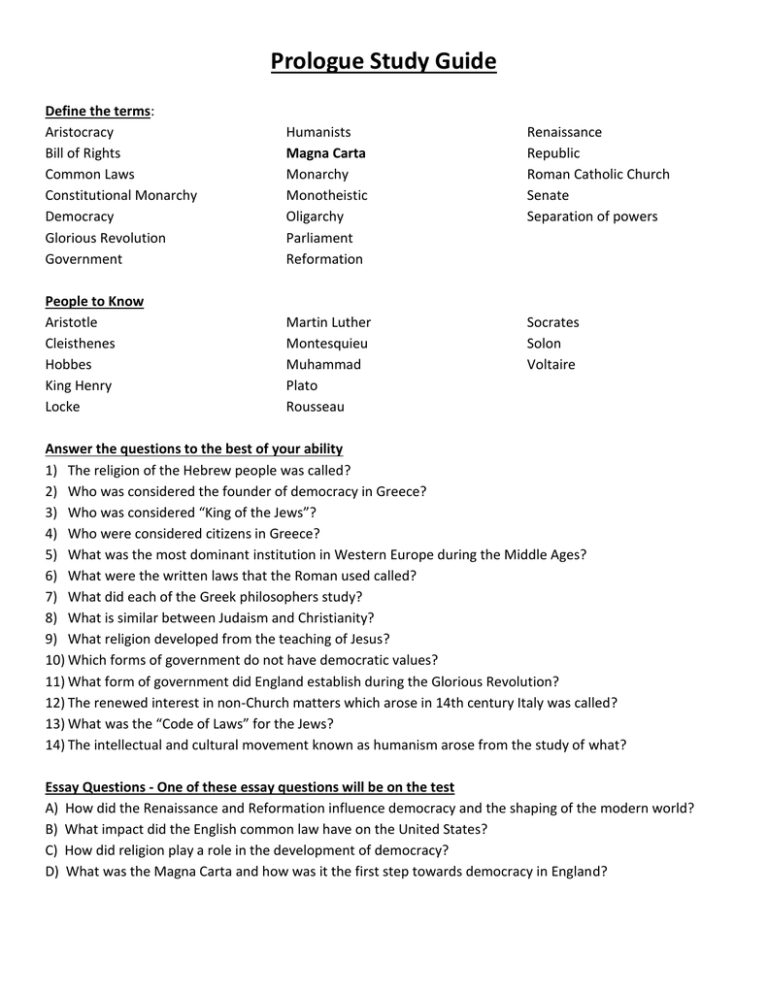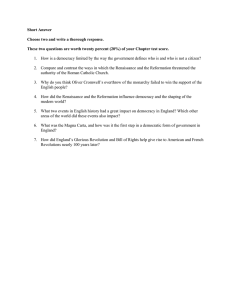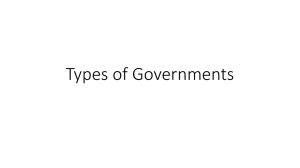Prologue Study Guide
advertisement

Prologue Study Guide Define the terms: Aristocracy Bill of Rights Common Laws Constitutional Monarchy Democracy Glorious Revolution Government Humanists Magna Carta Monarchy Monotheistic Oligarchy Parliament Reformation Renaissance Republic Roman Catholic Church Senate Separation of powers People to Know Aristotle Cleisthenes Hobbes King Henry Locke Martin Luther Montesquieu Muhammad Plato Rousseau Socrates Solon Voltaire Answer the questions to the best of your ability 1) The religion of the Hebrew people was called? 2) Who was considered the founder of democracy in Greece? 3) Who was considered “King of the Jews”? 4) Who were considered citizens in Greece? 5) What was the most dominant institution in Western Europe during the Middle Ages? 6) What were the written laws that the Roman used called? 7) What did each of the Greek philosophers study? 8) What is similar between Judaism and Christianity? 9) What religion developed from the teaching of Jesus? 10) Which forms of government do not have democratic values? 11) What form of government did England establish during the Glorious Revolution? 12) The renewed interest in non-Church matters which arose in 14th century Italy was called? 13) What was the “Code of Laws” for the Jews? 14) The intellectual and cultural movement known as humanism arose from the study of what? Essay Questions - One of these essay questions will be on the test A) How did the Renaissance and Reformation influence democracy and the shaping of the modern world? B) What impact did the English common law have on the United States? C) How did religion play a role in the development of democracy? D) What was the Magna Carta and how was it the first step towards democracy in England?





